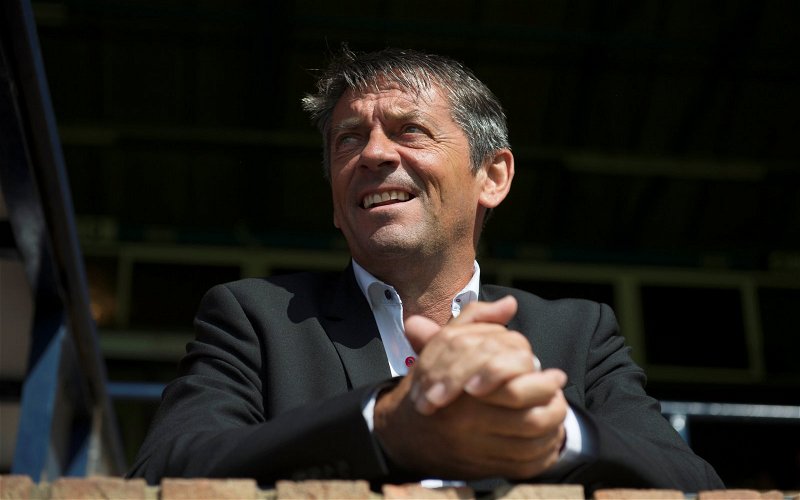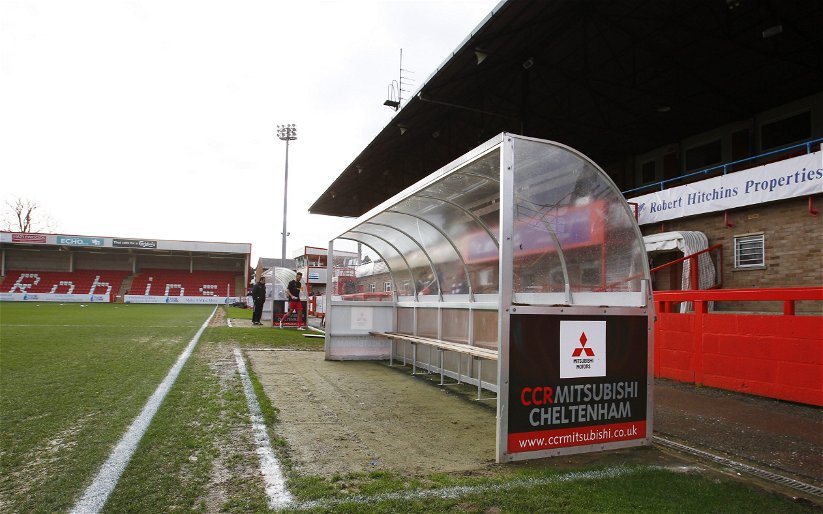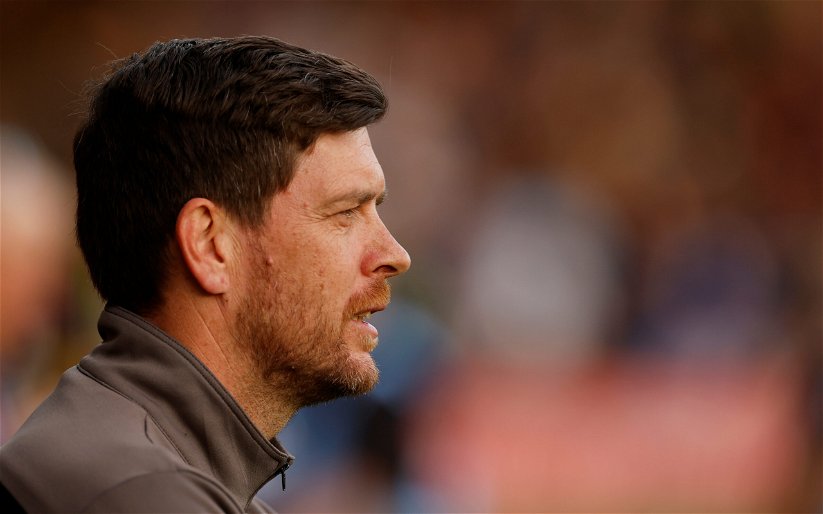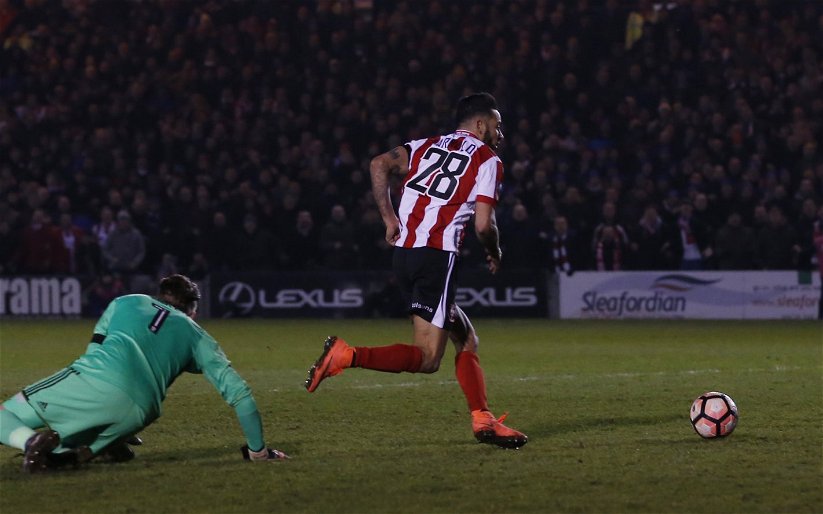Now one of the elder statesmen of football management, Phil Brown has recently completed forty years in professional football as a player, coach and manager. Despite accumulating 788 games as a player and 508 as a manager, he is perhaps better known for singing a song, of which more later.
In terms of his athletic development, Brown could not have had a better role model than his chemistry teacher at school in Hebburn – a certain Brendan Foster. Having started his career in local football in his native South Shields, Brown joined perennial Fourth Division strugglers Hartlepool United in 1978. Hartlepool had barely clung on to Football League status that summer, having applied for re-election for two seasons in a row. Perhaps it was only due to the poor form of Workington and Southport that kept Hartlepool in the League, with Pools surviving by just seven votes in 1978. It was the twelfth occasion they had been forced to seek re-election, and they had survived every time – a charmed life that would eventually come to an end almost forty years later.
Brown was undertaking an apprenticeship as an electrician at the time, and initially played on a non-contract basis. Once the apprenticeship was completed, Hartlepool gave him a five-year contract and he went on to make 243 appearances at Victoria Park. Hartlepool’s uncomfortably close shave with non-league football led to an improvement in 1978-79 with a thirteenth-place finish, although Brown did not make an appearance that season. Brown made his debut in 1979-80 as Pools finished just two points above the bottom four; a third application for re-election in four years would surely have been curtains. He was ever-present in 1980-81 as they missed promotion by only six points, but normal service was resumed in 1981-82 with another bottom half finish. Another re-election bid followed in 1982-83 with Pools gaining only ten more votes than challengers Maidstone United. A fourteenth bid for re-election followed immediately the following season, and it was some relief when they again won ten votes more than Maidstone. It was another case of panic stations the following season as eleven defeats from their last fourteen games saw them avoid a third successive re-election bid by just two points. If his time at Hartlepool gave him nothing else, Phil Brown certainly learned what survival was all about.
On 30 July 1985 he departed for Halifax Town, another of football’s traditional Houdini clubs. Indeed, Halifax had just survived two successive re-election bids themselves. In that respect, it was business as usual for both club and player as Halifax avoided a third successive bottom four finish on goal difference; had Exeter taken a point at home to Crewe on the final day instead of losing 2-1, Halifax may well have become the last club not to be re-elected to the Football League; automatic promotion and relegation came into force from the following season 1986-87, and we all know what happened then. With the need to finish above the bottom four reduced to the need to finish above the bottom one, Halifax moved into relative comfort over the next two years, although still well in the lower half of the table.
Despite playing in a struggling side, his 158 appearances in three years earned Brown a move to Bolton Wanderers on 23 June 1988 for a fee of £17,000. Wanderers had just been promoted to the Third Division under former England defender Phil Neal, and it was the start of a period of success for Brown. At the age of 29 he must have thought football consisted of re-election scraps and nothing else, but his first season at Burnden Park saw a tenth-place finish and a trip to Wembley for the Sherpa Van Trophy Final against Torquay. Bolton dominated to win 4-1, with one of their goals coming from former Lincoln defender Dean Crombie; also in the Bolton team that day were Lincoln Legend David Felgate and striker John Thomas. Bolton made the Third Division playoffs the following season after finishing sixth, but the promotion bid ended in the semi-finals with a 3-1 aggregate defeat to eventual winners Notts County.
Bolton missed automatic promotion on goal difference in 1990-91, with Grimsby Town taking third place. Two Tony Philliskirk goals gave them a 2-1 aggregate win over Bury to take them back to Wembley. This time the trip would prove unsuccessful, beaten 1-0 in extra time by Tranmere. There was also a run to the fourth round of the FA Cup where they were narrowly beaten 1-0 by Manchester United at Old Trafford. Another promotion challenge was mounted in 1991-92, but severe fixture backlog caused by another FA Cup run saw them collect just four points from ten games through March and April to finish thirteenth. The FA Cup run this time took them to the fifth round where they were beaten 3-2 in a replay by Southampton.
Manager Neal departed at the end of the season, replaced by Bruce Rioch. Having started 1992-93 inconsistently, an upturn in form from the end of October saw Wanderers seal automatic promotion in second place. There was yet another FA Cup run which included a famous 2-0 win over Liverpool at Anfield; it ended in the fifth round with a 3-1 defeat at Derby. It was at this time that Brown started to study for his coaching badges at the behest of manager Rioch. Bolton finished a creditable fourteenth in the newly-named First Division in 1993-94, and had another run in the FA Cup including a 3-1 win at Sincil Bank in the second round, the first time a Lincoln City game had been televised live. Bolton went all the way to the quarter-final, going down 1-0 to Premier League Oldham.
After 334 appearances for Bolton, Brown moved to Second Division Blackpool on a free transfer on 25 July 1994, becoming the first signing by new manager Sam Allardyce. He was also appointed assistant manager and began to make fewer appearances accordingly. After a twelfth-place finish in his first season, Blackpool made the playoffs in 1995-96 by finishing third. Unfortunately a 3-2 aggregate defeat to Bradford ended both their season and Phil Brown’s playing career at the age of 37. In spite of his relatively high profile as a manager today, Brown never appeared in the top flight as a player.
In the close season of 1996 he was on his way back to Bolton as first-team coach under Colin Todd. The 1996-97 season was one of unmitigated success, strolling to the First Division title by an eighteen-point margin despite a run of eight games without a win. A 6-1 win over Spurs also saw them reach the quarter-final of the Coca-Cola (League) Cup. They started the 1997-98 season in their new stadium, but life in the Premier League was a much tougher proposition. Wanderers needed a win from their final game at Chelsea to stay up, but they were beaten 2-0; Everton picked up a point from their home game against Coventry to move above Bolton on goal difference, and Bolton were down. It was also notable for being the first time that all three promoted clubs had been relegated (Bolton, Barnsley and Crystal Palace). Bolton made a good start to 1998-99, unbeaten for the opening eleven games, and secured a play-off place in sixth. An away-goal victory over Ipswich in the semi-finals (4-4) took them to Wembley where they were beaten 2-0 by Watford.
When Todd resigned on 22 September 1999 in protest against the sale of Per Frandsen, Brown took over as caretaker to give him his first taste of management. He won three league games out of four to maintain the promotion challenge until his Blackpool manager Sam Allardyce was appointed on 18 October. Brown stayed on as assistant manager, and so began a period of sustained success (and crippling debt) at the Reebok Stadium. The playoffs were reached after a great run of eight wins from their last ten games, but this time Ipswich gained revenge with a 7-5 aggregate win. More heartbreak came in the cups, with a 4-0 aggregate defeat to Tranmere in the semi-final of the Worthington (League) Cup. Unbelievably, the jinx struck again in the FA Cup when they lost 4-1 on penalties to Aston Villa in the Wembley semi-final. Sixty-two games had ended with nothing.
It was business as usual in 2000-01, with Bolton finishing third to reach the playoffs yet again. A 5-2 aggregate win over West Brom took Bolton to the Millennium Stadium where a 3-0 win over Preston carried them back to the Premier League. Bolton got off to a great start in 2001-02 with three straight wins taking them to the top of the table at the end of August. It took them twenty-three more games to win the next three, but Bolton struggled to a sixteenth-place finish and survival. The following season followed a similar pattern with a run of three wins from twenty-five games leaving the facing relegation. A sudden upturn in form saw them lose just twice in twelve games, and they went into the final day needing a win to stand any chance of survival. They beat Middlesbrough 2-1 in a tense game while West Ham could only draw at Birmingham; Bolton had survived by a two-point margin.



